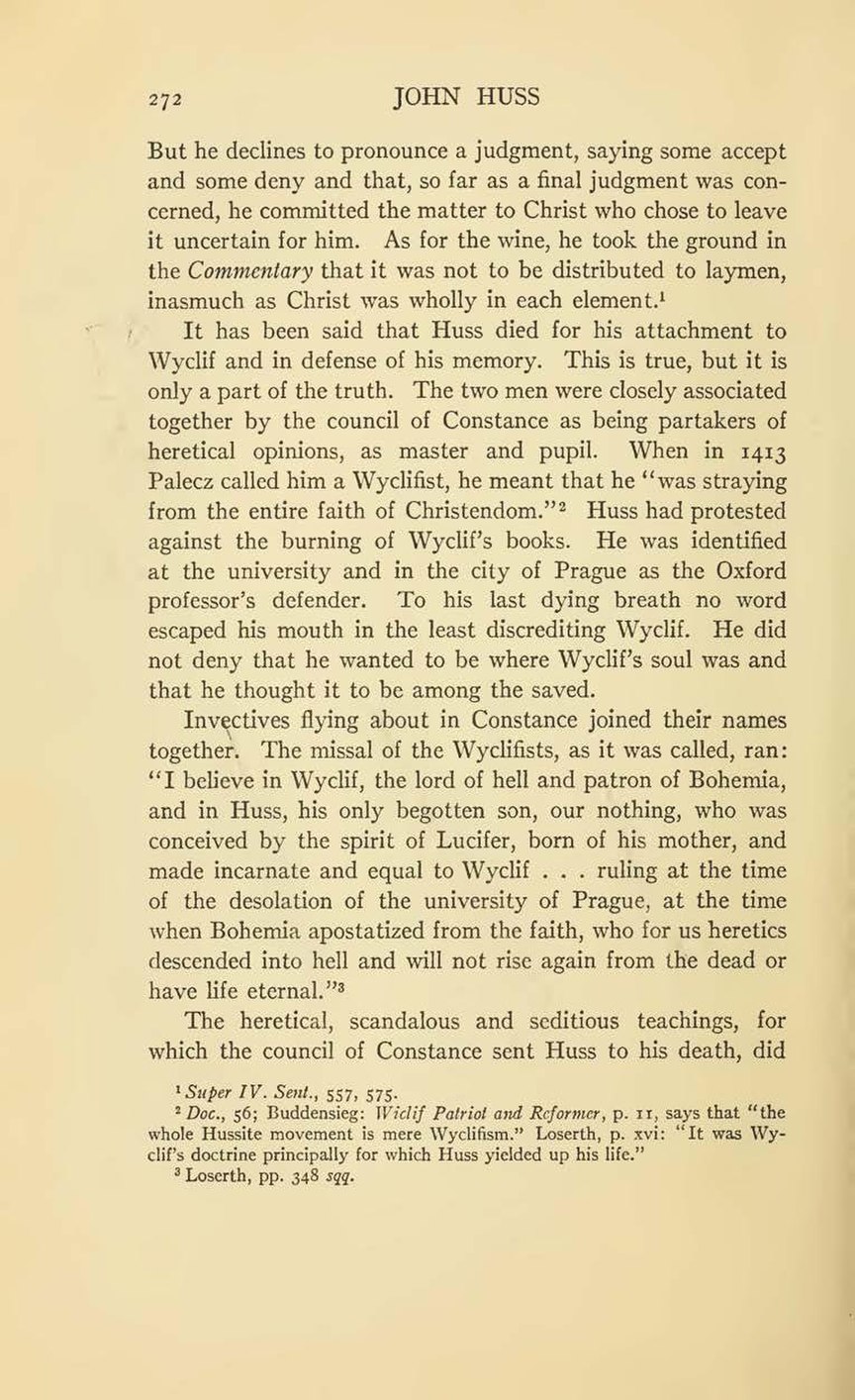But he declines to pronounce a judgment, saying some accept and some deny and that, so far as a final judgment was concerned, he committed the matter to Christ who chose to leave it uncertain for him. As for the wine, he took the ground in the Commentary that it was not to be distributed to laymen, inasmuch as Christ was wholly in each element.[1]
It has been said that Huss died for his attachment to Wyclif and in defense of his memory. This is true, but it is only a part of the truth. The two men were closely associated together by the council of Constance as being partakers of heretical opinions, as master and pupil. When in 1413 Palecz called him a Wyclifist, he meant that he was straying from the entire faith of Christendom.”[2] Huss had protested against the burning of Wyclif’s books. He was identified at the university and in the city of Prague as the Oxford professor’s defender. To his last dying breath no word escaped his mouth in the least discrediting Wyclif. He did not deny that he wanted to be where Wyclif’s soul was and that he thought it to be among the saved.
Invectives flying about in Constance joined their names together. The missal of the Wyclifists, as it was called, ran: “I believe in Wyclif, the lord of hell and patron of Bohemia, and in Huss, his only begotten son, our nothing, who was conceived by the spirit of Lucifer, born of his mother, and made incarnate and equal to Wyclif . . . ruling at the time of the desolation of the university of Prague, at the time when Bohemia apostatized from the faith, who for us heretics descended into hell and will not rise again from the dead or have life eternal.”[3]
The heretical, scandalous and seditious teachings, for which the council of Constance sent Huss to his death, did
